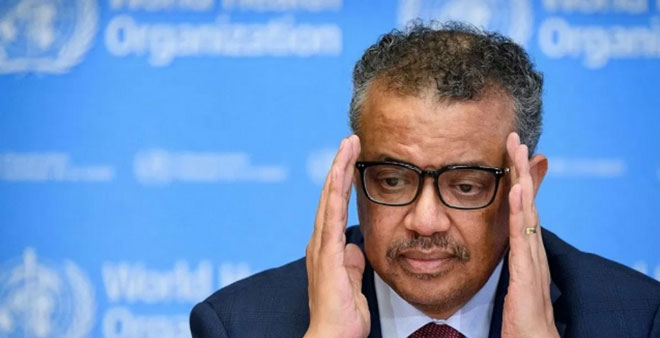The Director-General of the World Health Organization Dr Tedros Adhanom Ghebreyesus has expressed concern over the COVID-19’s delta variant, which he called the most transmissible mutation to date.
Dr Ghebreyesus told journalists at a regular briefing last evening that Delta has been identified in at least 85 countries and is spreading rapidly among unvaccinated populations. A surge in cases translates to more hospitalizations, which continue to stretch healthcare workers and health systems while putting more at risk of death, according to the WHO chief.
He acknowledged that new variants are expected, saying “that’s what viruses do, they evolve” and stressed that by preventing transmission, we can stem the emergence of variants. “It’s quite simple: more transmission, more variants. Less transmission, fewer variants”, Tedros spelt out, upholding that it is even more urgent today to prevent transmission by consistently using public health and social measures along with vaccines.
“This is why WHO has been saying for at least a year that vaccines must be distributed equitably, to protect health workers and the most vulnerable”, he said.
Maria Van Kerkhove, WHO Technical Lead on COVID-19, said, “the world situation is very fragile” and “countries must be cautious”. Noting that Delta has proved “extremely contagious in any country it reaches”, she cautioned that it is being transmitted among unvaccinated people, “even in countries with high percentages of immunization”. “The delta variant can make the epidemic curve exponentially”, added Dr Van Kerkhove.
But Delta is not the only worrying mutation. According to the WHO expert, “there is a constellation of variants circulating”, including subvariants, four of which are very worrying.
“Vaccines and treatments work, but these viruses can evolve,” she said, and the existing shots “may not work” over time, emphasizing again that to minimize outbreaks, everyone must continue to maintain public health measures.
![]()




























